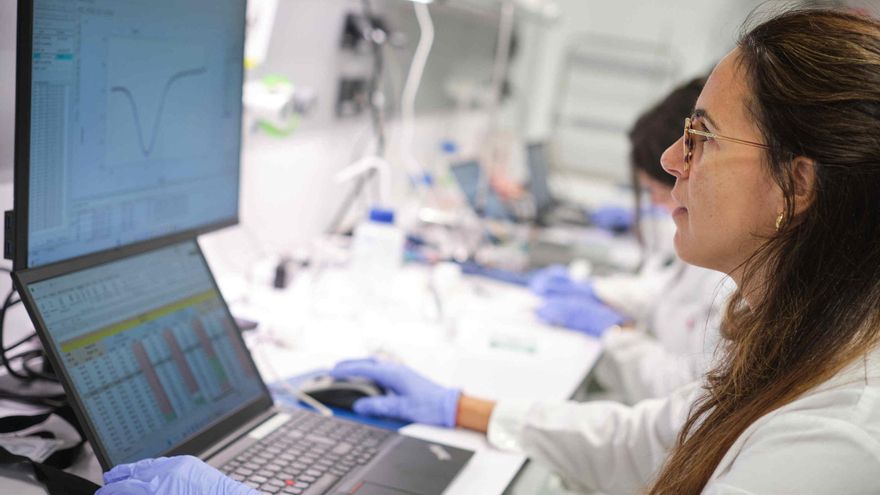A Wake-Up Call in Paradise
The recent collapse of Amazon Web Services (AWS) served as a stark reminder of the Canary Islands’ vulnerability to cyber incidents. The failure forced customers at shops, restaurants, and all kinds of businesses to pay with cash as card payment terminals (TPVs) became useless. It also rendered hundreds of websites and apps like Fortnite, Canva, Zoom, and Alexa inoperable. Major entities like CaixaBank and Santander, along with Visa’s operations and the instant transfer service Bizum, experienced serious operational problems.
Cyber Threats Are a Clear and Present Danger
In this context, several technology sector professionals gathered at the Oktober Tech conference in Gran Canaria’s capital. Among them was the president of the Canarias Excelencia Tecnológica Cluster, Oswaldo Brito, who pointed out that cyberattacks are a threat that “unfortunately can happen again and could affect the Canary Islands.” The Amazon incident lasted only four hours, but that was long enough to imagine an increasingly present future where online attacks disrupt the daily lives of citizens.
A Push for Technological Resilience
The truth is that the Regional Government had already approved, in June, a declaration of a technological emergency in the Canaries. This exceptional measure, proposed by the General Directorate of Digital Transformation, aims to speed up the implementation of a series of actions designed to reinforce the regional government’s computer systems and guarantee the best possible service for the population. Accordingly, the two-day Oktober Tech event is focusing on new global challenges, such as cybersecurity and defense, artificial intelligence (AI), and data management.
Homegrown Tech with Global Ambition
More and more companies are specializing in these fast-growing sectors. A clear example is the company XRF, which participated in the tech conference. Based in Gran Canaria with 90% local staff, XRF has expanded its offices to Madrid to serve the European market and to the United States to cover the American and Latin American markets. Its founder, Gustavo Medina, explains that the company has a global vision: “To live, invoice, and develop in the Canary Islands, but with an international reach.”
Using artificial intelligence and augmented reality, they have created a virtual command center from which to organize and supervise military operations. This means their technology can be used for both civilian and military applications. In fact, “this tool has interested the army, which supports the development and evolution of the project,” he states.
The Urgent Need for Technological Self-Sufficiency
Regarding the Amazon failure, Medina warns that “this is not a futuristic scenario, but a demonstration of our dependence on international sectors, providers, and technologies. This highlights the need to be resilient and seek technological self-sufficiency.” Achieving independence in this sector is one of the main challenges since, as Oswaldo Brito explained, “a significant portion of services are tied to international structures like Amazon or Microsoft.” Specifically, 90% of European cloud-hosted data is in the hands of American—and therefore private—companies. This means that when an attack or failure occurs on the other side of the world, the impact affects all their global clients and even the foundation of the economy in financial transactions, as was evident this past Monday.
A Thriving Local Tech Ecosystem
For his part, the Vice President of the Canarian Government and president of the company Proexca, Alfonso Cabello, positively assessed the Information and Communication Technology (ICT) ecosystem in the Canary Islands, which records figures that exceed the national average. The archipelago closed 2024 with 3,074 active companies, representing 4.5% of the national total. This sector experienced a year-on-year growth of 6%, far surpassing the national average of 3.4%. For comparison, the total number of companies grew by 2.3% in the Canaries and 1.5% across the country.
Inside the Canarian Tech Sector
Regarding the distribution of activity, almost half of the companies (49%) are dedicated to programming and IT consultancy; 22% to computer equipment repair; and 9% to data processing, hosting, and web portals. In terms of company size, 67% of Canarian ICT companies have no employees; 29% have between one and nine workers, and only 4% have more than ten. Nationally, these proportions are 59%, 33%, and 8% respectively.
Therefore, Cabello asserts that the technology sector “is already a mature market in the Canary Islands” and urges companies to bet on security “as the administration is already doing with significant investments.”

